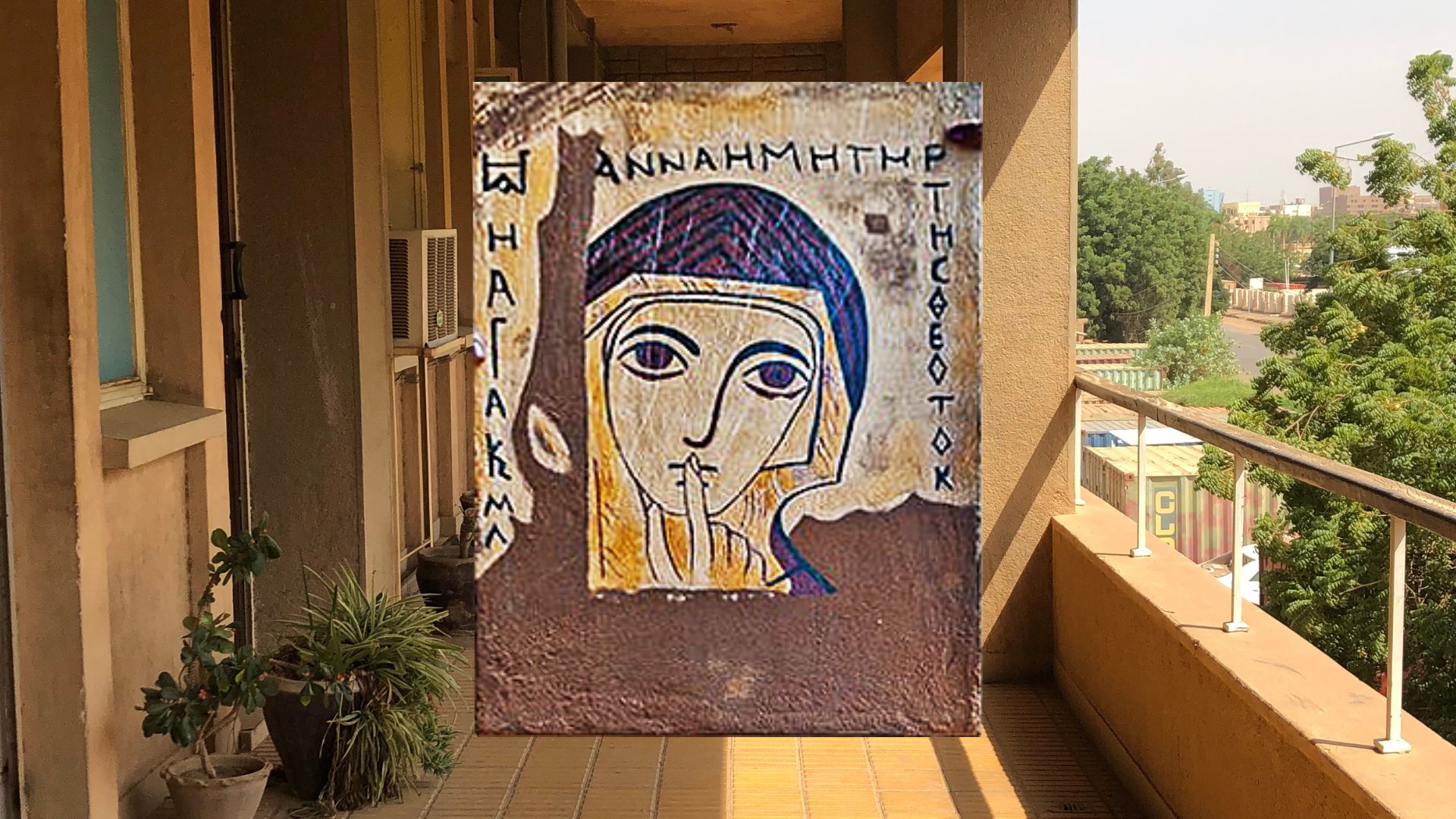Griselda and children
In this audio clip, siblings Dua’a, 13, Osama, 15, and Aya 12 years-old, describe their relationship with their neighbour whom they call “Haboba Griselda”.

/ answered
Visual artist Griselda El Tayeb MBE, travelled to Sudan in the early 1950s accompanying her husband, the eminent scholar of Arabic and Islamic Studies, Abdallah El Tayeb. The couple were returning in order for Abdallah to take up a teaching position after completing his Phd in London. During her life in Sudan, Griselda herself took up various teaching positions specialising in art and drafting school curricula on the topic. Art and painting thus formed an important part of Griselda’s life and she would draw and paint most of the places she visited and many of the people she saw. As such, much of her artwork has become a valuable record of bygone times and disappearing heritage in particular in relation to traditional Sudanese attire. Throughout her life Griselda always encouraged everyone around her to get creative and to paint, put on performances or get involved in any type of handicrafts.

In this audio clip, siblings Dua’a, 13, Osama, 15, and Aya 12 years-old, describe their relationship with their neighbour whom they call “Haboba Griselda”. This informal interview with the children was recorded at Griselda’s home at the University of Khartoum residences in the Burri neighbourhood of Khartoum, a short time after she passed away at the age of 97. By listening to the children talk about all the things they did together, it is clear how much of Griselda’s love and enthusiasm for art and creative activities has been passed on to the children. In the audio clip, the children give examples of the things Griselda taught them to draw and paint such as traditional Sudanese costumes, using potatoes as stencils to make their own wrapping paper and preparing Ramadan decorations. The children also tell of the time Griselda helped them to stage an old Sudanese folk tale; the costumes and parts they played, (including Griselda in the role of ghoul!), and how the surprise performance was well-received by their audience. By encouraging young Sudanese to observe, recreate and celebrate their surroundings and their cultural heritage, Griselda has played an important part in safeguarding this heritage for future generations.
Visual artist Griselda El Tayeb MBE, travelled to Sudan in the early 1950s accompanying her husband, the eminent scholar of Arabic and Islamic Studies, Abdallah El Tayeb. The couple were returning in order for Abdallah to take up a teaching position after completing his Phd in London. During her life in Sudan, Griselda herself took up various teaching positions specialising in art and drafting school curricula on the topic. Art and painting thus formed an important part of Griselda’s life and she would draw and paint most of the places she visited and many of the people she saw. As such, much of her artwork has become a valuable record of bygone times and disappearing heritage in particular in relation to traditional Sudanese attire. Throughout her life Griselda always encouraged everyone around her to get creative and to paint, put on performances or get involved in any type of handicrafts.

In this audio clip, siblings Dua’a, 13, Osama, 15, and Aya 12 years-old, describe their relationship with their neighbour whom they call “Haboba Griselda”. This informal interview with the children was recorded at Griselda’s home at the University of Khartoum residences in the Burri neighbourhood of Khartoum, a short time after she passed away at the age of 97. By listening to the children talk about all the things they did together, it is clear how much of Griselda’s love and enthusiasm for art and creative activities has been passed on to the children. In the audio clip, the children give examples of the things Griselda taught them to draw and paint such as traditional Sudanese costumes, using potatoes as stencils to make their own wrapping paper and preparing Ramadan decorations. The children also tell of the time Griselda helped them to stage an old Sudanese folk tale; the costumes and parts they played, (including Griselda in the role of ghoul!), and how the surprise performance was well-received by their audience. By encouraging young Sudanese to observe, recreate and celebrate their surroundings and their cultural heritage, Griselda has played an important part in safeguarding this heritage for future generations.

.svg)











